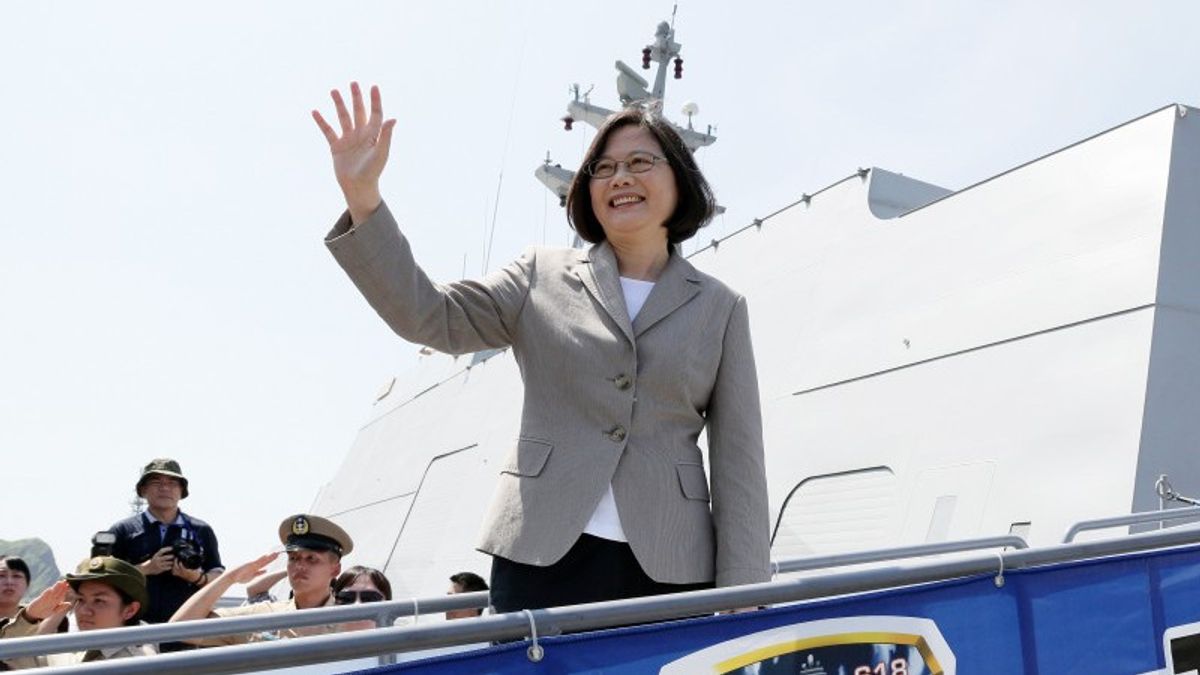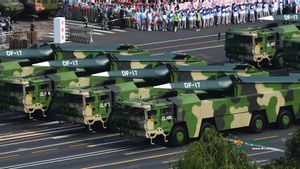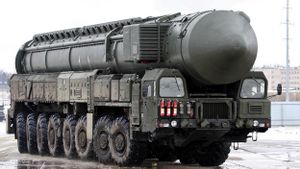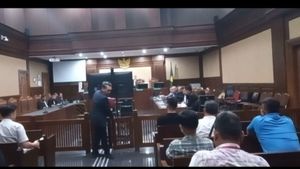JAKARTA - United States Republican lawmakers introduced legislation on Thursday seeking to provide $2 billion a year and other aid to bolster Taiwan's defenses in the face of mounting pressure from China.
The legislation, reviewed by Reuters, would authorize $2 billion a year in Foreign Military financing, U.S. grants and loans that allow countries to buy weapons and defense equipment manufactured in the United States through 2032.
The bill's sponsor is Senator Jim Risch, the Republican representative on the Senate Foreign Relations Committee, with co-sponsors including Republican Senators Mike Crapo, John Cornyn, Bill Hagerty, Mitt Romney and Marco Rubio.
Funding will come with conditions, including Taiwan's commitment to match US spending, and whether Taipei and Washington agree to joint long-term planning for capacity building.
The United States has urged Taiwan to pursue defense reforms, to focus on being able to make its military forces more mobile and harder to attack, and to ensure it maintains a strong reserve force.
The 'Taiwan Deterrence Act' will also amend the existing Arms Export Control Act, which regulates foreign military sales, to make it easier for US companies to sell arms to Taiwan. It will also require an annual assessment of Taiwan's efforts to advance its defense strategy against China.

The bill will also increase military exchanges with Taiwan, expand professional military education and technical training opportunities in the United States for Taiwanese military personnel.
"Taiwan's defense is critical to maintaining the credibility of the United States as a defender of democratic values and free-market principles embodied by the people and government of Taiwan," the text of the bill said, citing Reuters on November 5.
Earlier, President Biden had confirmed his 'steadfast' commitment to Taiwan and criticized China. Beijing blames Washington's policy of supporting Taiwan with arms sales and sending warships through the Taiwan Strait for escalating tensions.
Separately, the European Parliament's first official delegation to Taiwan said on Thursday the diplomatically isolated island nation was not alone and called for bolder action to strengthen EU relations, as Taipei faces mounting pressure from Beijing.
Taiwan, which has no formal diplomatic ties with any European countries except the Vatican, wants to deepen ties with EU members.
The visit comes at a time when China has stepped up military pressure, including repeated missions by Chinese warplanes near democratic Taiwan, which Beijing claims as its own and has not ruled out taking it by force.
"We came here with a very simple and very clear message: you are not alone. Europe supports you," Raphael Glucksmann, a member of the French European Parliament, told Taiwanese President Tsai Ing-wen in a meeting broadcast live on Facebook.
"Our visit should be considered an important first step. But next, we need a very concrete high-level agenda and high-level concrete steps together to build a much stronger EU-Taiwan partnership," said Glucksmann, who led the delegation.
The three-day visit, organized by the European Parliament committee on foreign interference in the democratic process, will include exchanges with Taiwanese officials about threats such as disinformation and cyber attacks.

Previously, President Tsai had warned of increasing Chinese efforts to gain influence in Taiwan, calling on security agencies to counter infiltration attempts.
"We hope to form a democratic alliance against disinformation," President Tsai told delegates at the Presidential Office.
"We believe Taiwan and the EU can definitely continue to strengthen our partnership in all domains," President Tsai continued.
Last month, Taiwan's Foreign Minister Joseph Wu made a rare trip to Europe last month that angered Beijing, which warned host countries against damaging ties with China.
Fearing retaliation from Beijing, most countries are unwilling to accept Taiwan's senior ministers or send high-level officials to the island.
SEE ALSO:
Last month, the European Parliament adopted a non-binding resolution to deepen ties with Taiwan, with steps such as looking into an investment agreement.
Separately, Chinese Foreign Ministry spokesman Wang Wenbin condemned the meeting during a daily press conference in Beijing.
"We urge the European side to correct its mistakes and not send the wrong signal to Taiwanese separatist forces. Otherwise, it will damage China-EU relations," he told reporters.
The English, Chinese, Japanese, Arabic, and French versions are automatically generated by the AI. So there may still be inaccuracies in translating, please always see Indonesian as our main language. (system supported by DigitalSiber.id)


















